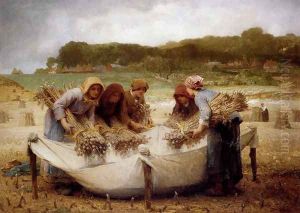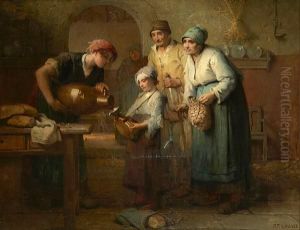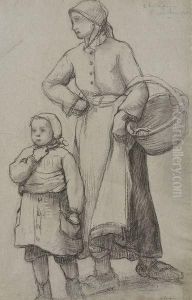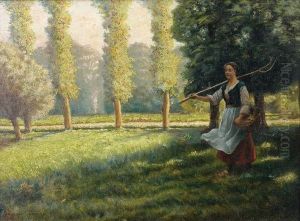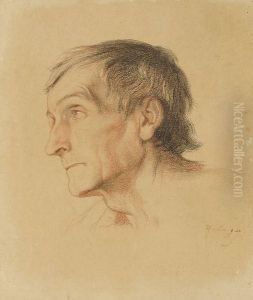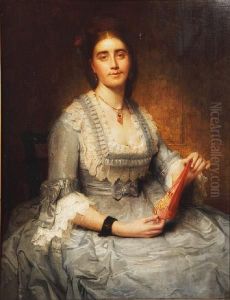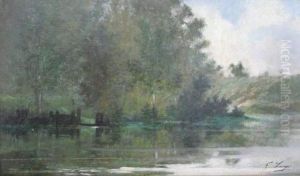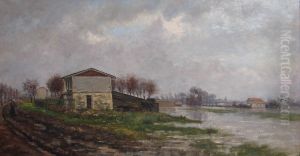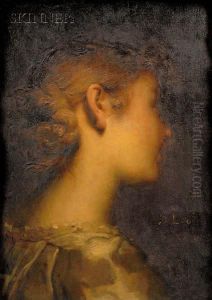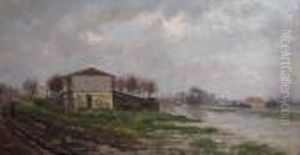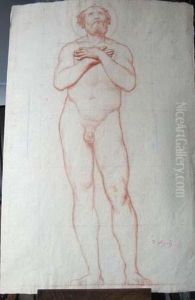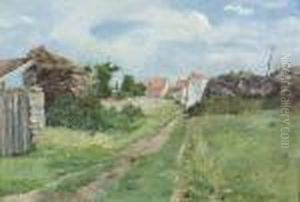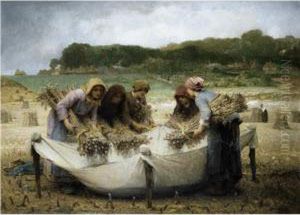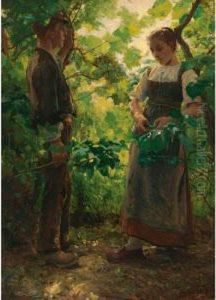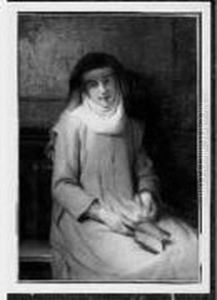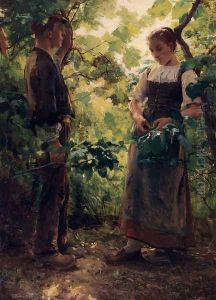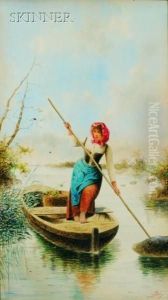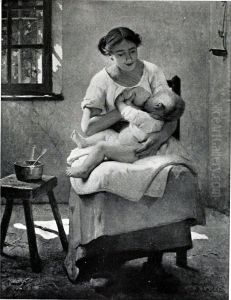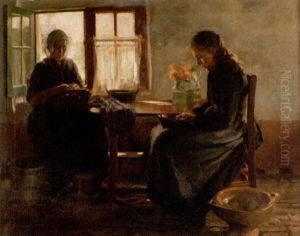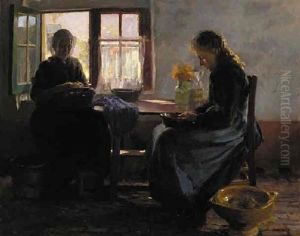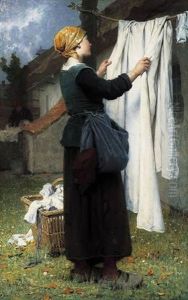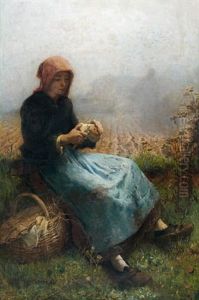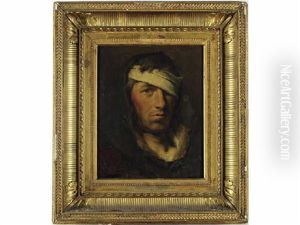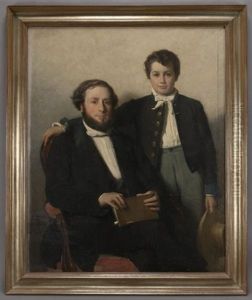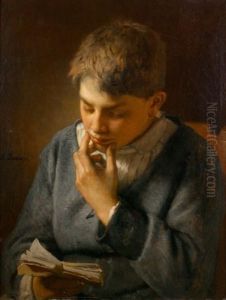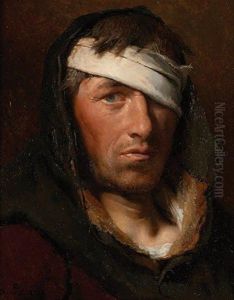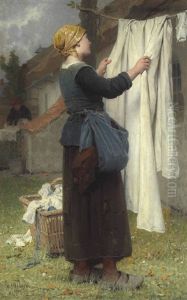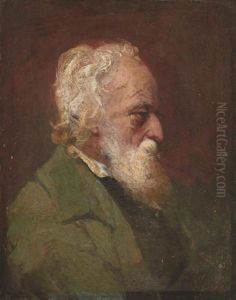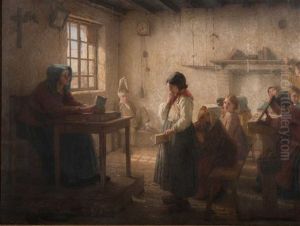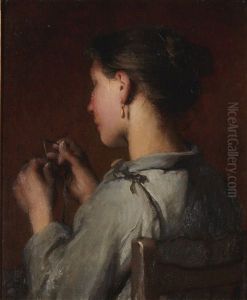Desire Francois Laugee Paintings
Désiré François Laugée, born in 1823 in Maromme, France, was a distinguished French realist painter whose works deeply reflect the 19th-century French rural life. He was a prolific artist known for his detailed depictions of peasant life, embodying the realist art movement's principles by portraying everyday scenes with honesty and dignity. Laugée's upbringing in the French countryside profoundly influenced his choice of subjects, often highlighting the simplicity and hardship of rural existence.
Laugée received his formal art education at the École des Beaux-Arts in Paris, where he was a student of François-Édouard Picot. His education was rooted in the academic tradition, yet he was greatly influenced by the emerging realist movement, led by artists like Gustave Courbet, who advocated for depicting the world realistically without idealization.
Throughout his career, Laugée exhibited his works at the prestigious Paris Salon, earning recognition and accolades for his contributions to French art. His paintings are characterized by their detailed realism, use of light, and empathetic portrayal of his subjects. Laugée was particularly adept at capturing the textures of the natural world and the nuanced expressions of people engaged in daily labor.
Beyond his paintings, Laugée also contributed to the art community as a mentor, teaching and influencing a new generation of artists. His legacy is not only in his own works but also in his encouragement of a realistic portrayal of life in art, steering French painting towards modern realism.
Désiré François Laugée passed away in 1896, leaving behind a rich body of work that continues to be celebrated for its insight into 19th-century French rural life and its contribution to the realist movement. His paintings remain in collections and museums around the world, testament to his skill in capturing the essence of his time and environment.
